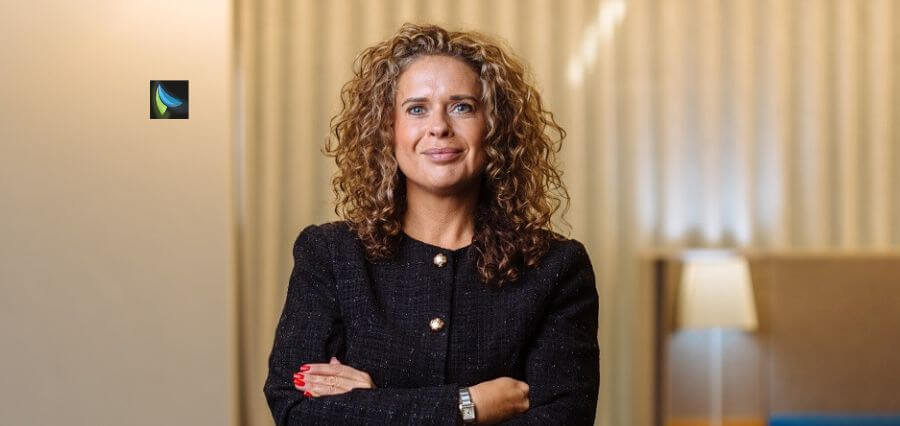The supply chain is a traditionally male-dominated field. Therefore, being a leader in the supply chain field is not as easy as it sounds for women. It takes courage, zeal to learn, and resilience to be in this field and make a difference. Today, many brave and resilient women leaders have entered this space, are making notable contributions, and are setting inspirational standards for other women. One such inspirational leader in the supply chain industry is Monique Alblas, the Vice President of Consulting at GEP Worldwide.
Let’s shed some light on her journey as a business leader.
Gaining Learning Experiences and Being Best at Consulting
After graduating, Monique joined a small company for which she was asked to set up a separate IT contingent labor company. Being an entrepreneur at such a young age was a tremendous learning experience for her, covering all aspects of a business in which, of course, she also made more than her fair share of mistakes that she had to overcome.
After that, Monique joined a global high tech firm with responsibility for a triple-digit spend portfolio of professional services companies. During this time, she worked with C-suite executives in a male-dominated engineering environment and learned to stand her ground. Working with a wide variety of consultants and seeing the difference they could make in relatively short periods made her realize that being a consultant would fit her like a glove. She notes, “Being a consultant means you always have to bring your A-game. You’re hired to achieve meaningful results. It’s never easy, but I love it.”
Supply chains have also seen a lot of unprecedented challenges over the past years, and Monique joined GEP Worldwide, just as when the world was dealing with the pandemic. One of the major areas of concern, especially in the first few months of the crisis, was the overdependence on China and the inability to procure materials from there and several other parts of Asia. Many enterprises were forced to look for an alternative, and likely more expensive suppliers and solutions.
At GEP, Monique supported several clients with make-or-buy decisions to prevent big losses. She led a team that looked into setting up local and regional production for some of the materials that they could not get via the regular supply chains because of logistical issues caused by COVID-19, as well as collaborations with other third parties to bundle their buying power.
Monique believes that procurement can no longer just focus on volumes and driving down costs to help achieve the company’s larger objectives. Procurement and supply chain leaders need to look for innovative solutions to play a strategic role in achieving company goals. Leaders need to genuinely collaborate with their ecosystem — with their suppliers and suppliers’ suppliers and evolve from a transactional vendor-style relationship.
She says, “To develop an informed perspective on what’s going on in the market, and to understand what’s possible, it’s paramount that procurement and supply chain leaders collaborate with suppliers and other organizations. This means stepping outside our comfort zones and boundaries of negotiating prices, quantities and lead times to also focus, and assist, suppliers with tracking their environmental impact, cutting waste, sustainability, innovating activities, adopting new digital platforms to share data more easily and gain greater visibility across the entire, multi-step, global supply chain.”
Driving Great Value to Customers and Stakeholders Globally
Founded 22 years ago, GEP is a leading provider of supply chain and procurement software, consulting, and managed services to Global 2000 enterprises worldwide. Its mission is to integrate strategy, software, and managed services so its clients can transform and optimize their supply chains and drive greater value to customers and stakeholders.
With more than 5,000 employees across 24 locations in Europe, Asia, Africa, and the Americas, GEP is continuing to grow by double digits as global companies are accelerating their investment in remaking their supply chains.
Giving Back to the Society
Talking about the values and culture of GEP, Monique mentions that it is a privately held, minority, and women-owned business, where giving back is an integral part of its purpose and its DNA.
GEP was founded on six core values, including delighting customers, excellence, and caring. By caring, it means caring for each other as colleagues, for the communities where they live, and for the environment. Monique asserts, “Caring is integral to our culture because it connects our thousands of employees across every office with a common purpose to improve people’s lives.”
Besides, it won Best Places to Work in nearly every other country it operates. Its approach combines a top-down corporate-led program and enables employees to create activities for their communities. It identified four specific social areas for its employees to help address: empowering women: enabling basic education for children; alleviating hunger – and sustainability initiatives to cut its environmental impact. Each year, GEP Worldwide spends between 5% to 10% of its annual profit through direct contributions and matching employees’ initiatives.
Last year, GEP’s employees spent more than 20,000 hours undertaking local activities to support women’s development, address hunger, and provide children with access to basic education.
Building Resilient and Sustainable Supply Chains
Monique opines that GEP’s future is bright. It is an exciting time for the company because supply chains and procurement are now a boardroom- and investor-level issue. Companies are – accelerating the transformation to build resilient, agile and sustainable supply chains.
Today, companies need redundancy and resilience, as well as speed and cost efficiency, to better manage supply disruptions, inflation, scarcity, and cyberattacks. Companies are also shifting from measuring to cutting the environmental impact of their entire complex supply chains. Furthermore, procurement is now strategic and essential to get costs in line with inflation running more than 7%.
GEP invests heavily in product development, led by ML/AI for advanced data analytics in everything, from real-time demand forecasting — enabling clients to react quickly and be demand-led — to identifying savings and determining what components and services “should cost” to evaluating the performance of suppliers. GEP continues to roll out control towers to identify potential disruptions and issue resolution.
Playing a Pivotal Role in Supporting Companies
In conclusion, Monique expresses, “This is an exciting and important time to be consulting for companies about their global supply chain, and GEP, as a global leader, is ideally positioned. Disruptions in logistics and drastic changes in consumer expectations have sparked an unprecedented focus on supply chain management for C-suite executives. We are now seeing the shift from logistics and supply chain primarily being a back-office function to a boardroom priority. It is only the start as supply chains will continue to grow in complexity. The future survival for organizations now depends on effectively managing the 5Vs of supply chain success: visibility, volatility, velocity, vulnerability and viability. GEP is growing very rapidly, and I’m excited to be playing a pivotal role in supporting companies reimagin their supply chains, and to adopt new technologies to become more cost-effective, resilient and sustainable.”



















